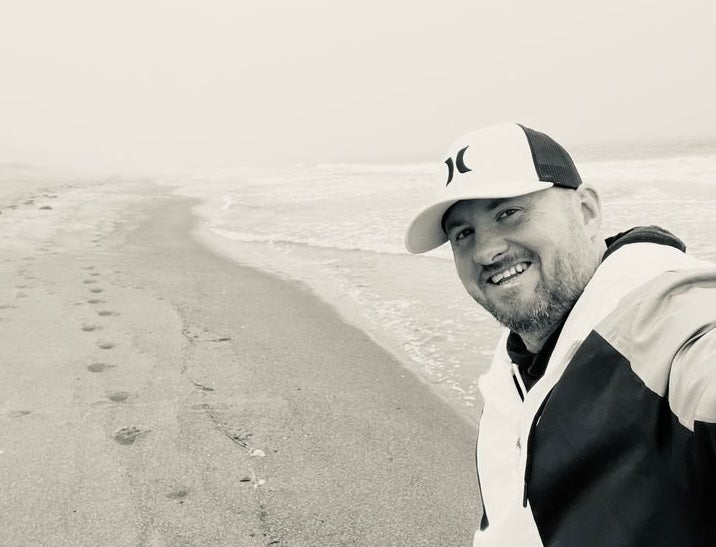The Independent's journalism is supported by our readers. When you purchase through links on our site, we may earn commission.
Man, 41, identified as New Hampshire’s first rare mosquito virus death in a decade
Steven Scott Perry, 41, passed away earlier this month from Eastern Equine Encephalitis

Your support helps us to tell the story
From reproductive rights to climate change to Big Tech, The Independent is on the ground when the story is developing. Whether it's investigating the financials of Elon Musk's pro-Trump PAC or producing our latest documentary, 'The A Word', which shines a light on the American women fighting for reproductive rights, we know how important it is to parse out the facts from the messaging.
At such a critical moment in US history, we need reporters on the ground. Your donation allows us to keep sending journalists to speak to both sides of the story.
The Independent is trusted by Americans across the entire political spectrum. And unlike many other quality news outlets, we choose not to lock Americans out of our reporting and analysis with paywalls. We believe quality journalism should be available to everyone, paid for by those who can afford it.
Your support makes all the difference.A New Hampshire man who died after contracting the rare Eastern Equine Encephalitis virus (EEEV) was identified on Wednesday as Steven Scott Perry.
The 41-year-old resident of Hampstead died at Boston’s Massachusetts General Hospital on August 19, according to his obituary.
Although Perry was not identified in state health officials, his death was shared by the New Hampshire Department of Health and Human Services on Tuesday. He was New Hampshire’s first Eastern Equine Encephalitis case, and death, in a decade.
The last reported human EEEV infection in New Hampshire was in 2014, when health officials identified three human cases, including two fatalities.
“It is with heavy hearts that the family acknowledges that Steven left those that he loved far too soon after being stricken by a sudden and rare brain infection,” his obituary reads.
In a Wednesday interview with Boston 25 News, his mother and sister said Perry had been hospitalized for a week before his death. He had no underlying medical conditions, and they did not know where he had contracted the virus. An autopsy revealed his cause of death.
“It was such a tragic, sudden loss, and the progression of this virus is rapid,” his sister Susan Hamilton said. “It’s horrible.”

Perry, who was born in the town of Haverhill, worked as the director of Hampstead Nursing Services with his mother Judith Perry. He had attended Bryant University.
He grew up playing varsity basketball and soccer at Lawrence’s Central Catholic High School, and graduated in 2001. His father, James Perry, passed away just a few years earlier, in 1998.
Perry was remembered as a devoted son, brother, and uncle, who “brought joy and laughter to all who knew him.”
He was also an avid golfer and Boston sports fan, and enjoyed time spent with his family out on Hampstead’s 500-acre Big Island Pond. Photos posted to Perry’s Facebook page show him on golf courses, riding a horse, and walking on a beach.
“Though his time with us was cut short, Steven had a sense of adventure, lived a full life and was happiest spending time with his family, who meant everything to him,” the family said.
Perry is also survived by his brothers James Perry, Jr. and Michael Perry, his girlfriend Kaitlyn Muir, and six nieces and nephews.
States across the eastern U.S. are on high alert for EEEV, and other mosquito-borne diseases including West Nile virus, this summer. A nationwide tracker shows four EEEV cases have been reported in Wisconsin, Massachusetts, New Jersey, and Vermont.
Spread through the bite of infected mosquitoes, approximately 30 percent of those infected die. Survivors are often left with neurologic problems. There are no vaccines or medicines to treat or prevent the disease.
A Massachusetts man in his eighties was hospitalized earlier this month after being exposed to the virus in Worcester County. The Massachusetts Department of Public Health declined to provide further details on the case due to patient privacy.
In Vermont, a Chittenden County man in his forties was hospitalized on July 16. He left the hospital a week later.
Health authorities advise people to wear protective clothing and stay indoors at dawn and dusk, when mosquitoes are the most likely to bite.
“Given how deadly this virus is, even though it’s rare, the only prevention is doing the things that the news is now encouraging people to do,” Hamilton told Boston 25 News.
A celebration of Perry’s life was held last Sunday at the Brookside Chapel & Funeral Home in Plaistow. His funeral took place on Monday morning at Saint Anne Church in Hampstead.
“Steven will forever be in our hearts, remembered for his warmth, spirit, and the love he shared with all who knew him,” the obituary said.

Join our commenting forum
Join thought-provoking conversations, follow other Independent readers and see their replies
Comments